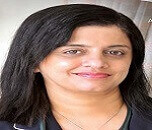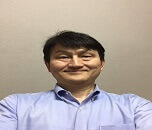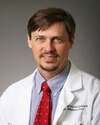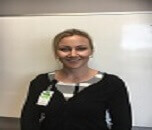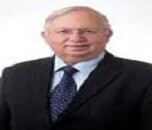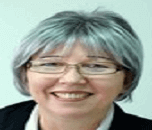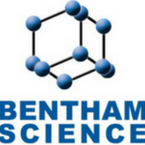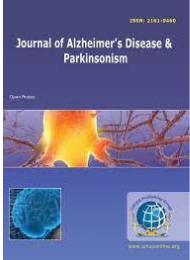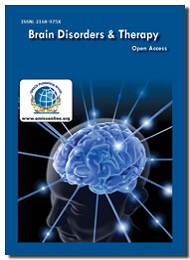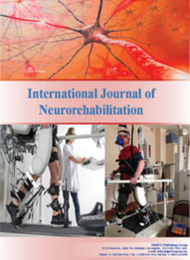Theme: Theme: Scientific Innovations, Research Ideologies & Clinical Practice in Alzheimer Disease
Alzheimers-2023
- About Conference
- Sessions/Tracks
- Market Analysis
- Abstract Submission Criteria and Eligibility
- Participation Options and Benefits
Conference Series invites all participants worldwide to attend the 13th Global Alzheimer’s Summit (ALZHEIMERS-2023) (GAS-2023) on August 28-29, 2023 in Seattle, USA cordially invites you to Oral presentations, poster presentations and exhibitors sharing their knowledge. The main theme of the conference is "Scientific Innovations, Research Ideologies & Clinical Practice in Alzheimer Disease".(GAS-2023) The conference aims to extend its reach in the field of Neuroscience and lectures by experts and presentations by young researchers will keep the conference inspired and keep you enthusiastic. We feel that our expert organizing committee is our major asset. But your presence at the venue adds another feather to the crown of ALZHEIMERS-2023. (GAS-2023)
Alzheimer’s, is a progressive disease beginning with mild memory loss and possibly leading to loss of the ability to carry on a conversation and respond to the environment. Alzheimers-2023 (GAS-2023) consists of the following 15 tracks and sessions designed to provide a comprehensive session that addresses current issues in Neuroscience. (GAS-2023) Global Alzheimer’s Summit (GAS-2023) can answer business problems that traditionally take too long to solve. 13th Global Alzheimer’s Summit (GAS-2023) emphasizes on how importance and significance can be gauged by the fact that it has made huge advancements over the course of time and is continuing to influence various sectors.
Track 1: Dementia
Dementia[GAS-2023] is not a specific disorder. It's an overall term that describes a wide variety of signs associated with a decline in memory or other thinking talents extreme enough to lessen a person's ability to perform regular activities. Vascular dementia,[GAS-2023]which takes place after a stroke, is the second most not unusual dementia type. But there are numerous other conditions that may cause signs and symptoms of dementia, which include some which might be reversible, such as thyroid issues and vitamin deficiencies. Dementia is a syndrome that involves intense loss of cognitive talents due to ailment or injury. Dementia as a result of worrying mind harm is often static, whereas dementia due to neurodegenerative disorders, inclusive of Alzheimer's disease,[GAS-2023]is commonly revolutionary and can sooner or later be fatal.
- Diagnosing Dementia
- Dementia during Aging
Track 2: Alzheimer’s Diseases
Caring for a person with dementia influences distinctive people in diverse ways. In any case, caring can also be both physically and rationally debilitating. It affects all factors of your life and may have an impact on you to feel separated, driven and at instances even discouraged. You may additionally have your own physical and psychological wellbeing needs, which you and others may additionally neglect while you are tending to some other person. There are severe high-quality things about caring. These incorporate adapting new aptitudes, expanding on existing ones, reinforcing connections, having a feeling of delight in what you are doing, and assisting somebody who is vital to you. Dementia cares the executives is a model of network orientated consideration, characterized as an unpredictable intercession planning to offer ideal remedy and care to patients with dementia and bolster parental figures utilizing a PC helped appraisal determining a customized cluster of mediation modules and resulting fulfilment checking.
Track 3: Parkinson Diseases
Parkinson's Diseases [GAS-2023](PD) is a never-ending and dynamic neurological problem that influences engine work, inflicting bradykinesia, postural unsteadiness, inflexibility, and tremor very still. Side effects develop progressively, making start finding troublesome. PD likewise has some non-engine highlights, inclusive of psychological well-being issues, rest unsettling impacts and autonomic aggravations. At introduce, there may be no treatment for PD. The remedy is, subsequently, long past from treating side consequences. There is proper now two fundamental ways to address more suitable dopaminergic action in the mind: increasing dopamine emission with exogenous operators and focusing on associated neurotransmission pathways. Levodopa is the regular metabolic antecedent of dopamine and is profoundly a success for treating PD indications. Neuro Psychiatry of Parkinson Disease
- Clinical Diagnostics of Parkinson Disease
- Neuropathophysiological Condition
Track 4: Clinical features and Physiotherapy for dementia
The point of a decent arrangement of the examination diversion in dementia is to expand mediations for 'cure' or even 'fix'. The old-style seat to bedside worldview has been baffling in dementia. [GAS-2023]There is a long posting of putative dementia treatment mixes with positive pre-medicinal and early-stage preliminary realities which have been impartial or even conceivably hurtful while surveyed in fragment III investigations. Lewy body dementia is a typical anyway frequently under analysed intention of dementia regularly inadmissible for the more familiar substance of Alzheimer malady. Clinically the qualification is significant, in light of the fact that it might have significant ramifications for the executives. The anticipation of Lewy body dementia has basic ramifications. It is related with an over-the-top pervasiveness of neuroleptic affectability, requiring fabulous alert inside the utilization of those basic antipsychotic specialists.
Track 5: Neurological Diseases
Neurological disorders [GAS-2023] are maladies of the focal and fringe sensory machine. At the end of the day, spinal rope, cranial nerves, fringe nerves, nerve roots, autonomic sensory device, and neuromuscular intersection. These disarranges comprise epilepsy, Alzheimer contamination and one of a kind dementias, cerebrovascular sicknesses such as stroke, headache and different migraine issue, numerous sclerosis, Parkinson's infection, neuro infectious, mind tumors, lousy scatters of the sensory system because of head injury, and neurological issue because of hunger. Neurological manifestations may additionally happen because of the contamination itself or due to a safe reaction. Countless individuals international are influenced via neurological disarranges. Epilepsy and Seizures
Track 6: Alzheimer’s disease Pathogenesis
Alzheimer's infection is an advanced dementia with absence of neurons and the nearness of leader tiny neuropath logical trademarks: extracellular amyloid plaques and intracellular neurofibrillary tangles. Early starting AD, an unusual familial shape, is incited because of exchange of one out of 3 qualities. Sporadic shape happens normally after age of sixty-five and bills for maximum cases; it best plausible influences from a mix of hereditary and effect of environment. Affirmed risk factors for sporadic AD are age and the nearness of the E4 allele of (Apo lipoprotein E) Amyloid plaques incorporate explicitly of the neurotoxic peptide amyloid (Aβ, A beta), cut consecutively from a greater forerunner protein (APP) thru two compounds: β-secretes (otherwise known as BACE1) and γ-secretes (including four proteins, presently is one in the entirety about).
Track 7: Alzheimer Disease and Cellular Mechanisms
Most continuous endeavors to battle Alzheimer Disease [GAS-2023]are targeted around treating its clinical symptoms, however the neuropathology modifications fundamental show up decades sooner and flip out to be essentially irreversible when the illness achieves its clinical stages. This calls for treating at preclinical stages, which requires a superior comprehension of the important units prompting Alzheimer Disease pathology. Alzheimer's contamination is a complex hereditary problem that is the main supply of dementia in the elderly. Atomic affirmation raised the presumptions that trafficking of the amyloid precursor protein is under control of insulin flagging. Most progressing endeavors to battle Alzheimer infection are focused round treating its medical facet effects.
- Neurofibrillary Degeneration
- Nervous System Disease
- Medial Temporal Lobe
- Fixing Genetic risk for Alzheimer’s
Track 8: Medical Biotechnology and Alzheimer’s disease
Alzheimer's disease as a dynamic and deadly neurodegenerative sickness speaks to an immense ignored requirement for treatment. The low viability of current remedy techniques is not just due to low medicinal drug depth yet in addition due to the nearness of various hindrances in the conveyance courses. One of the fundamental limitations is the blood mind boundary. The expanding predominance of Alzheimer's Diseases and the low viability of ebb and flow treatments have elevated the measure of studies on unwinding of illness pathways and development of treatment techniques. One of the captivating regions for the remaining challenge is biotechnology and their applications. Nanotechnology is a standout amongst the most critical subject in biotechnology and has a noteworthy part inside the development of novel remedial modalities with accelerated adequacy. In the nanotechnology subject, materials are designed with utilitarian association at the Nano scale. Alzheimer disease drug discovery
Track 9: Clinical Aspects of Alzheimer’s Disease
Alzheimer's disease [GAS-2023]is the most common dementia disease and is a progressive, permanent, and incurable neurodegenerative disease. It generally begins after the age of 60 and lasts from 8 to 12 years. Cognitive deterioration, loss of functional autonomy, changes in behavior and increased care needs are all symptoms of the slow and steady progression of this disease. The burden of neocortical neurofibrillary tangles has been shown to have a pathological correlate of cognitive impairment in clinicopathologic studies. The most common symptom of Alzheimer's disease is persistent impairment of episodic memory.
Track 10: Genetics in Alzheimer’s and Dementia
Alzheimer's disease (AD) is the most common form of neurodegenerative disease in the elderly. Short-term memory loss is the most common symptom in patients, followed by executive dysfunction, confusion, agitation, and behavioral abnormalities. Alzheimer's[GAS-2023]disease is the most common cause of permanent and progressive dementia. Alzheimer's disease, for example, is a brain disorder that causes dementia. Dementia is often caused by a complicated combination of circumstances, including our age, medical history, and lifestyle, as well as our genes. The majority of dementia cases are not caused by genes we inherit from our parents. Our physical characteristics, such as eye color and size, are determined by our genes. They may be able to predict whether or not we can get the disease under certain circumstances.
Track 11: Psychogeriatrics of AD and Dementia
Geriatric psychiatry is a branch of psychiatry that focuses on the diagnosis and treatment of mental disorders in older people. Geriatric psychiatry deals with mental health problems in older people. Due to the worldwide increase in the number of people surviving to old age, its importance increased dramatically at the end of the 20th century. Geriatric psychiatry seeks strategies to prevent dementia [GAS-2023]and to identify and treat depression and other illnesses in the elderly as early as possible. Geriatric psychiatry has been called "general psychiatry with a twist". Working with elderly patients requires a psychiatrist to be exceptionally adaptable, with a wide range of knowledge and abilities suited to the assessment of mental behavioural problems in the elderly.
Track 12: Clinical Neurology, Neurophysiology and Neurosurgeries
The research and treatment of people with disorders of the nervous system is central to this discipline of clinical neurology. A neurologist is a doctor who specializes in the treatment of diseases of the nervous system. The nervous system is divided into two parts: the central nervous system and the peripheral nervous system. The brain and spinal cord are included. Neurophysiology[GAS-2023]is a branch of medicine that analyses central and peripheral neural systems by observing bioelectrical activity, both spontaneous and induced. It includes pathophysiology research as well as clinical strategies for diagnosing disorders affecting both the central and peripheral nervous systems. In the discipline of clinical neurophysiology, tests are not limited to those performed in the laboratory. It is considered a follow-up to a neurology consultation.
Track 13 :Model Care of People with Dementia and AD
Caring for someone with Alzheimer's disease[GAS-2023]or another type of dementia is a long, demanding and emotionally draining experience. There are more than 16 million people caring for someone with dementia in the United States, and many more around the world. Because there is currently no cure for Alzheimer's disease or dementia, your care and support are usually the most important factors in improving your loved one's quality of life. When you see your loved one's memories fade and their skills deteriorate, caring for someone with Alzheimer's disease or dementia can feel like a series of grief experiences. Dementia[GAS-2023]causes people to change and behave in unexpected ways, which can be distressing or unsettling. Caregivers and their patients may experience feelings of bewilderment, irritation, and despair as a result of these changes.
Track 14: Symptoms of dementia
Every person is unique, and dementia [GAS-2023]affects people differently – no two people will have symptoms that develop in the same way. An individual’s personality, general health and social situation are all important factors in determining the impact of dementia on him or her. Symptoms vary between Alzheimer’s disease and other types of dementia, but there are broad similarities between them all. The most common early signs of dementia are memory loss and a reduction in practical abilities, which can lead to withdrawal from work or social activities. If you think that these problems are affecting your daily life, or the life of someone you know, you should talk to your doctor, or encourage them to talk to theirs.
Track 15 : Other diseases associated with dementia and AD
Dementia[GAS-2023]is a word used to describe loss of memory, language, problem-solving, and other thinking skills severe enough to affect daily life. The most common cause of dementia is Alzheimer's disease. Dementia is not a single disease; it is an umbrella term that encompasses a wide range of medical conditions, including Alzheimer's disease, like heart disease. Abnormal brain changes create the disorders included under the umbrella term "dementia". These alterations lead to deterioration in thinking skills, also called cognitive skills, severe enough to interfere with daily life and autonomy. They also have an impact on his conduct, his emotions, and his relationships.
The Global Forecast for Alzheimer’s Disease Diagnostic Market( 2023- 2029 Outlook)-High Tech & Emerging requests Report, published by Barnes Reports, contains timely and accurate request statistics and vaticinators on the request for over 50 countries. The global request is anticipated to increase from USD xx billion in 2022 to USD xx billion by 2029, at a CAGR of xx from 2023 to 2029. Estimates on outfit or material deals (product shipments value) are published historically for 2016 to 2019, protrusions for 2020 to 2022 and vaticinators for 2023 to 2028. Product shipments include the total value of all products produced and packed by all directors. For named products, this can represent value of bills, value of product, or value of work done. Further than 50 countries are featured in this report as well as global and indigenous summaries. Product shipment value is presented in US Bones and original currency units for literal and forecast years. Published annually, this report provides a unique and accurate estimate on request sizing for this outfit/ material using a personal profitable model that integrates literal trends (vertical analysis) and longitudinal analysis of incorporated diligence (perpendicular analysis). Regional summaries include North America, Europe, Asia- Pacific, Latin America, Africa, and Middle East. Percent shares are presented for each region as a share of the global request.
These requests are labelled by Barnes Reports as arising request because their periodic growth rate is above seven percent, which is the literal average return of the NYSE stock request. Thus, any request, assiduity, investment or growth rate that exceeds the foremost investment request in the world would be considered a below average growth rate. They're also labelled high tech requests because they're new, cutting- edge requests are presently small but are projected to have extraordinary capabilities in the coming five times.
Presentation Requirements: (GAS-2023)
- Participating authors are answerable for registration, travel, and hotel costs. Note: Those with submitted abstracts will get an acknowledgment mail enabling them to enrol for the gathering.
- Abstracts will be compiled, and conference books are made available to participants at the conference. (GAS-2023)
- Any presenter who is unable to attend should arrange for another qualified individual to present the paper/poster in question. If such a change is necessary, please notify our conference team
Submission Options:
- Oral paper introductions will have 30-minute schedule time slot. The keynote session will have for 45-minute presentation duration, workshop/special session will have 1-hour long schedule opening and symposium will have 1-hour long availability followed by 5-minute Q&A session.
- Graduate and master’s understudies are qualified to present their abstracts under poster and e-poster presentation category.
- Ph.D. understudies are qualified to submit their abstract under special YRF (Young Researcher's Forum), (GAS-2023) poster and e-poster presentation category.
- NOTE: YRF category includes short oral presentation especially for Ph. D. students
- Extended abstract: Submissions should utilize the Abstract Template. (GAS-2023) Papers submitted in this category may represent original empirical research, theoretical development, reviews, or critiques.
Participation Options: Alzheimer’s Conference (GAS-2023) provides the participants with different modes or ways to participate such as Delegate or Speaker under ACADEMIC / STUDENT / BUSINESS Category. Mode of participation is Online through Power Point Presentation/ Video Presentation on Cisco Webinars.
- Keynote speaker (GAS-2023): 45-50 minutes
- Speaker (oral presentation): 25-30 minutes (only one person can present)
- Speaker (workshop): 45-50 minutes (more than 1 can present)
- Speaker (special session): 45-50 minutes (more than 1 can present)
- Speaker (symposium): more than 45 minutes (more than 1 can present)
- Delegate (only registration): will have access to all the sessions with all the benefits of registration (GAS-2023)
- Poster presenter: can present a poster and enjoy the benefits of delegate
- Remote attendance: can participate via video presentation or e-poster presentation
- Exhibitor: can exhibit his/her company’s products by booking exhibitor booths of different sizes
- Media partner
- Sponsor (GAS-2023)
- Collaborator
Benefits of Joining Conference:
- Get your abstract published with DOI
- Get Certified for your participation
- Reduced Costs Affordability
- Knock Down Geographical Barriers
- Convenience from comfort of your own home or from work
- They’re Archived: Ability to view events in the recording
- Great resource for learning new career skills
- Learn from the Pros
- Global exposure to your research
- Make new connections (GAS-2023)
- Significant time saving
- Wider Reach
- Position yourself as the expert (GAS-2023)
- Get your abstracts published with unique DOI in International Journals
- Get up to 50% discounts for publishing your entire article in our open access International Journals
- Get Handbooks and conference kits (GAs-2023)
- Get an access to the network with eminent personalities from worldwide.
Conference Highlights
- Dementia
- Alzheimer’s Diseases
- Parkinson Diseases
- Clinical features and Physiotherapy for dementia
- Neurological Diseases
- Alzheimer’s disease Pathogenesis
- Alzheimer Disease and Cellular Mechanisms
- Medical Biotechnology and Alzheimer’s disease
- Clinical Aspects of Alzheimer’s Disease
- Genetics in Alzheimer’s and Dementia
- Psychogeriatrics of AD and Dementia
- Clinical Neurology, Neurophysiology and Neurosurgeries
- Model Care of People with Dementia and AD
- Symptoms of dementia
- Other diseases associated with dementia and AD
To share your views and research, please click here to register for the Conference.
To Collaborate Scientific Professionals around the World
| Conference Date | August 28-29, 2023 | ||
| Sponsors & Exhibitors |
|
||
| Speaker Opportunity Closed | |||
| Poster Opportunity Closed | Click Here to View | ||
Useful Links
Special Issues
All accepted abstracts will be published in respective Our International Journals.
- International Journal of Neurorehabilitation
- Journal of Alzheimers Disease & Parkinsonism
- Journal of Neurological Disorders
Abstracts will be provided with Digital Object Identifier by


